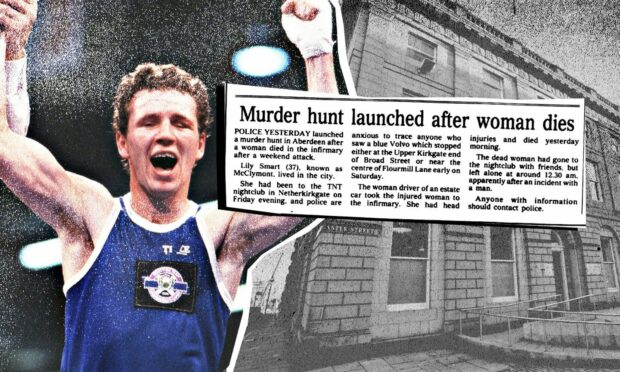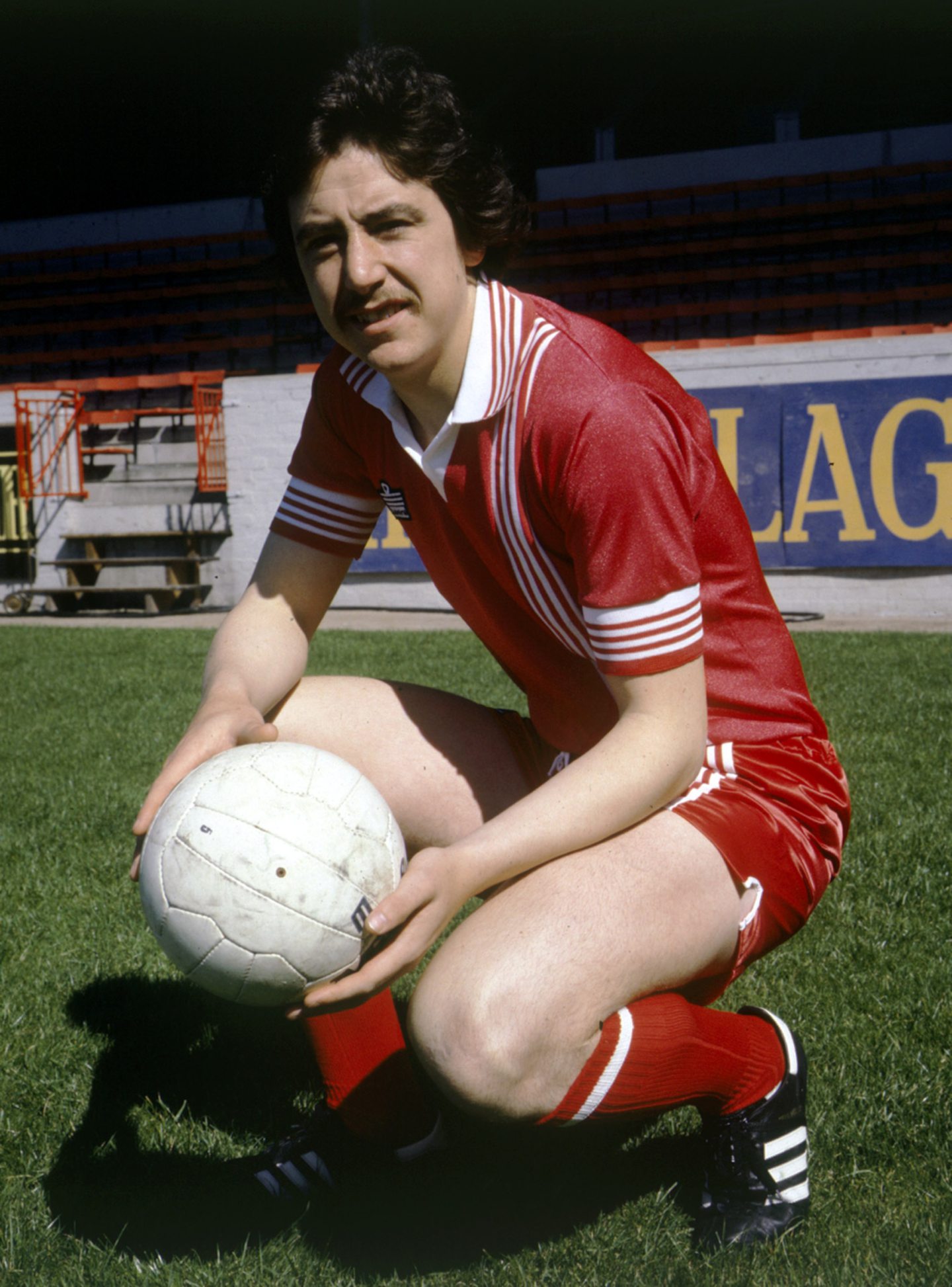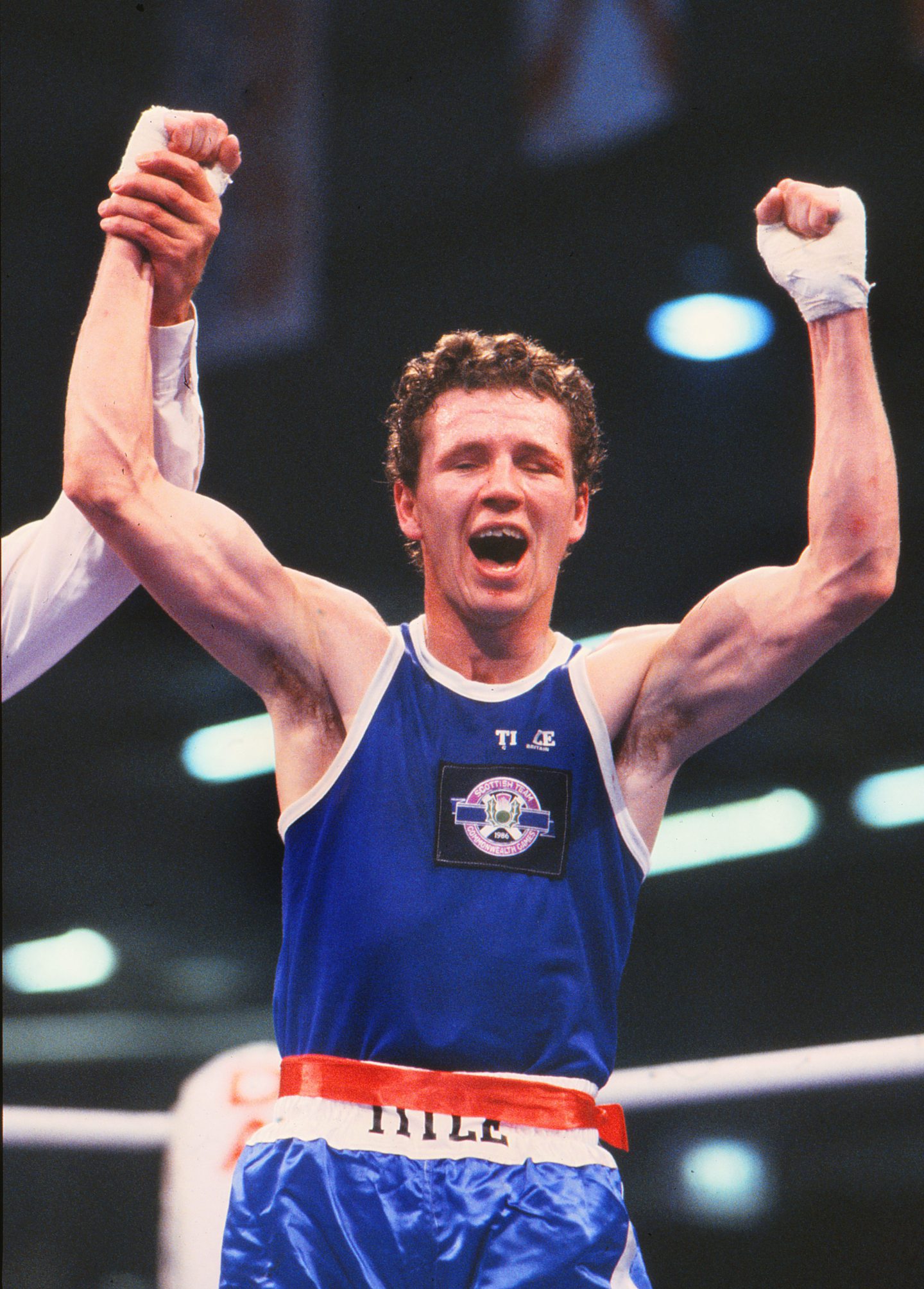It was a crime which killed an Aberdeen mother-of-four and led to a Commonwealth Games boxer being given a hefty jail sentence.
And even today, as police warn about the lethal consequences of a few blows struck in anger, it’s obvious that the impact of a moment of madness in the Granite City 30 years ago had a lingering impact on two different families.
The Press & Journal reported on June 16 1992 that a murder hunt had been launched following the news that “the ex-wife of a former Dons star and Highland League player had died after a late-night street attack”.
Lily Smart, 37, also known as McClymont, had been on a life support machine after being assaulted in the city centre, close to the TNT nightclub, where she was said to have been “involved in an incident with a man”.
Lily’s family were devastated by news
The P&J said that the victim had two children, Joe and Donna, by her former husband, Pittodrie star Joe Smith, who made more than 140 appearances for the Dons between 1972 and 1978 and who was part of the club’s Scottish League Cup-winning side who beat Celtic 2-1 in the final in 1976.
At the time of her death, she was living with her partner in Summerfield Place in Aberdeen and had gone to the Netherkirkgate club with friends on Friday night for what she imagined would be an opportunity to let her hair down.
However, as the P&J said: “Police believe that Ms McClymont was assaulted in the Fourmill Lane area behind Marks and Spencer or near [the former] Aberdeen District Council’s St Nicholas House headquarters on Broad Street, opposite Marischal College at about 12.30-1am [on Saturday morning].
“She was taken to hospital in a blue Volvo estate car, but although the medical staff did everything that they could, her injuries proved too severe.
“It is understood that her family were at her bedside when she died.”
In the aftermath, Mrs Kate McMaster, the wife of Joe’s former Dons clubmate, John [a Gothenburg Great] said that she was both stunned and devastated by the news of Ms McClymont’s death.
She added: “We knew each other when Joe and John played together and we were quite good friends. She was such a happy-go-lucky sort of person to be around. It is just so sad to hear about this.”
Detectives appealed for witnesses, examined the CCTV pictures from the area, and it was not long before there was news of an arrest.
But it sparked significant headlines when the man charged with Lily’s death turned out to be a Scottish boxer with a formidable international pedigree.
The trial was an emotional affair
James McAllister was one of the best performers for his country in the ring at the 1986 Commonwealth Games in Edinburgh, where he picked up a silver in the welterweight division and was unlucky not to gain the top prize.
He was part of Scotland’s most successful-ever team effort at the competition.
However, few focused on his sporting exploits when he appeared at the High Court in Aberdeen in May 1993, charged with the death of Lily McClymont.
It was a highly-charged case with tears and recriminations from those inside the building and emotive words from the family after the proceedings.
Very quickly, two things became clear. Firstly, the case revolved around a short, sharp unpremeditated attack by McAllister. And secondly, that he had a string of previous convictions for these types of acts of violence.
The Evening Express reported: “McAllister, of Canal Street, Aberdeen, who is unemployed, denied killing Ms McClymont, of Summerfield Place, in June last year by punching her in the face and causing her to fall to the ground.
“The court was told that the fall caused a fractured skull and brain injuries and that Mrs McClymont died two days later in hospital. Before the assault, she and McAllister had been involved in an altercation in a night club.”
Donald Findlay QC argued that the cause of death had been accidental, insisted that McAllister had never intended to kill her, and claimed there had not been a high degree of violence, nor a sustained attack.
He summed up: “The level of violence is not consistent with fatal injuries. It was because she fell and banged her head.”
Even if this had been carried out by a first-time offender, it wouldn’t have diminished the family’s heartbreak, but it quickly became apparent that McAllister was a serial transgressor when it came to using his fists.
He not only had nine previous convictions for assault, but committed the assault on Ms McClymont while he was out on bail.
In these circumstances, it was unsurprising that Lord Abernethy told McAllister he had a dreadful record and that he would be failing in his public duty if he did not impose a substantial custodial sentence.
He said that, while he accepted McAllister had not intended to kill the woman and that there was no element of premeditation about the attack, the force of the blows must have been considerable.
But the punishment did not fit the crime, according to the victim’s family.
Initially, at least, relatives of the dead woman cheered and applauded the jury’s unanimous verdict when it was announced, but several of them burst into tears as McAllister was led from the dock to start a six-year sentence.
Strict security was in force during the trial and 10 uniformed and six plainclothes officers were in court for the verdict because of fears there might be a violent confrontation in the building between the two families.
This didn’t happen, but there was bitterness once the dust had settled at the perceived leniency of the sentence for such a violent offender, with the criticism led by Ms McClymont’s brother Peter Smart.
He said: “Six years is not enough for taking my sister’s life. He has left four children motherless. He battered her brains in.
“My sister was not the drunken fool that they [Mr Findlay and his colleagues] tried to make out. She was just a woman who was out for the night.”
McAllister served four years and was released from Perth Prison in 1997.
More like this:
Black Panther Hunter: The Islander who got notorious killer Donald Neilson to confess




